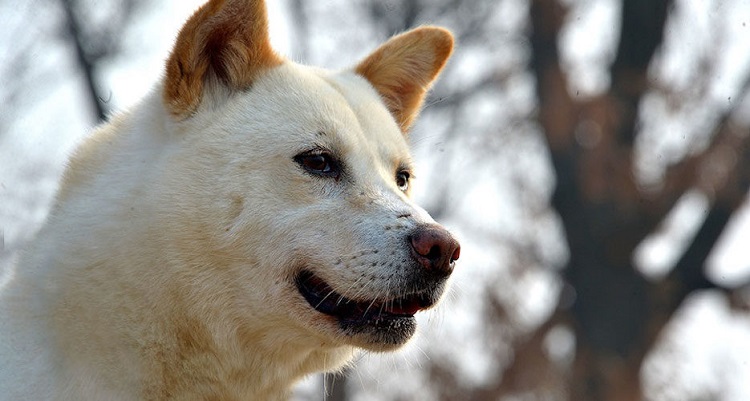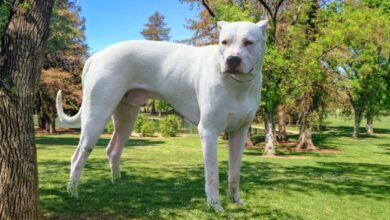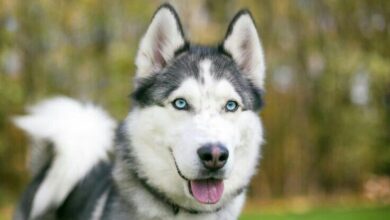Pungsan Dog Breed Information: Price, Lifespan, Traits and Characteristics

Pungsan Dog Breed Overview
The Pungsan dog is a Korean breed that was originally bred to be a hunting dog. The name of the breed comes from the Korean word “pung” which means “yellow”. It is use for hunting, tracking and police work. Pungsans are medium-sized dogs with a lifespan of 12-14years. They are intelligent, loyal and have a calm temperament. They have been bred for generations to be hunters, so they are very good at tracking and retrieving game.
Pungsan Dog Breed Profile At a Glance
| Dog Breed Name | Pungsan |
| Other Names | Phungsan, Poongsan, Pungsangae, Korean Poongsan |
| Size | 90-120 Pounds |
| Average Height | 20–24 Inch |
| Average Weight | 44–66 lb |
| Energy | High Energy |
| Activity | Needs Plenty of Exercise, Hikes, Agility Courses and Hunting, Enjoy spending time indoors with the family |
| Origin | Korea |
| Group | Pungsan Group |
| Life Span* | 12–14 Year |
| Biography | The Pungsan or Poongsan is a breed of hunting dog from Korea, named for originating in Kim Hyong Gwon County, formerly Phungsan county. They were bred in the Kaema highlands of what is now North Korea, and were traditionally used as hunting dogs. |
| Coat | Thick Coat |
| Colour | White |
| Temperament | Brave, Strong, Hunting Instinct, Loyal, Energetic, Agile |
| Pungsan Dog price in India | |
| Pros & Cons |
Characteristics of the Pungsan
Pungsan Dog is a large breed of hunting dog that is used for tracking and hunting large game, such as boar, deer, and bear. The breed is also known as the Korean Tiger Dog, due to its ability to take down large prey. The Pungsan Dog is an intelligent breed that is easy to train. They are also known for being very loyal and protective of their owners.
Pungsan Price
Pungsan price would range from $8,000 and $1,500 (Estimated).
Pungsan Dog Appearance:
Pungsan Dog Size
Pungsan dogs are Giant in size, Female: 20–24 Inch, Male: 20–24 Inch
Pungsan Dog Weight
Pungsan Dog Standard Weight starts from: Female: 44–66 lb, Male: 44–66 lb
Pungsan Dog Color
Pungsan Dogs are found in Various combinations like Black, White etc.
Pungsan Dog Coat
Pungsan coat is Thick Coat.
Top Activities of Pungsan.
Pungsan top activities are long walks, hikes, and games etc.
How long does a Pungsan live?
Pungsan average lifespan 12–14 Years.
Pungsan Dog Temperament
The temperament of Pungsan dogs is Brave, Strong, Hunting Instinct, Loyal, Energetic, Agile
Interesting Facts about Pungsan
- Pungsan dogs are a rare breed of dog that is native to North Korea.
- The breed is named after the city of Pungsan, where they were first bred.
- They are considered to be national treasures in North Korea, and are used as working dogs in a variety of roles, including hunting, guard duty, and sledding.
- Pungsan dogs are large dogs, with males typically weighing between 65 and 80 pounds.
- Pungsan dogs are known for being loyal and obedient, and they are often used as guard dogs.
Most Frequent Asked Questions about Pungsan Dog
Q1. Do Pungsan dogs shed?
Yes, Pungsan dogs do shed. This is an important consideration for anyone looking to own one of these dogs, as they tend to shed year-round and will require regular grooming to keep their coats in good condition.
Q2. Are Pungsan dogs active?
Pungsans are known for their intelligence, loyalty and protective nature. They are also highly active, with a strong prey and hunter’s drive.
Q3. What kind of coat does a Pungsan dog have?
A Pungsan dog has a thick double coat that is typically white in color with patches of brown or black. The topcoat is dense and weather-resistant, while the undercoat is soft and thick.
How much exercise does a Pungsan dog need?
Pungsan dogs need plenty of exercise to stay healthy and happy. Daily walks and playtime are essential for this breed, and they should also have access to an area to run and explore.
Q4. Are Pungsan dogs easy to train?
Yes, Pungsan dogs are generally very intelligent and easy to train. They learn quickly and respond well to positive reinforcement techniques such as treats and praise.





